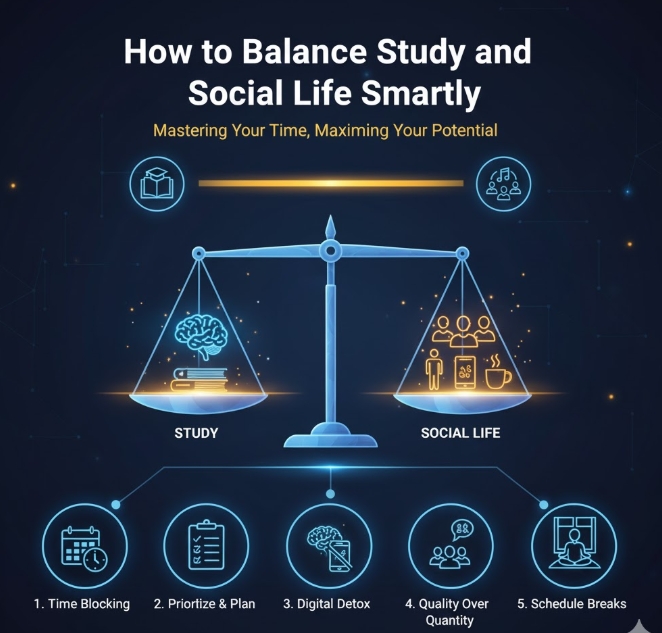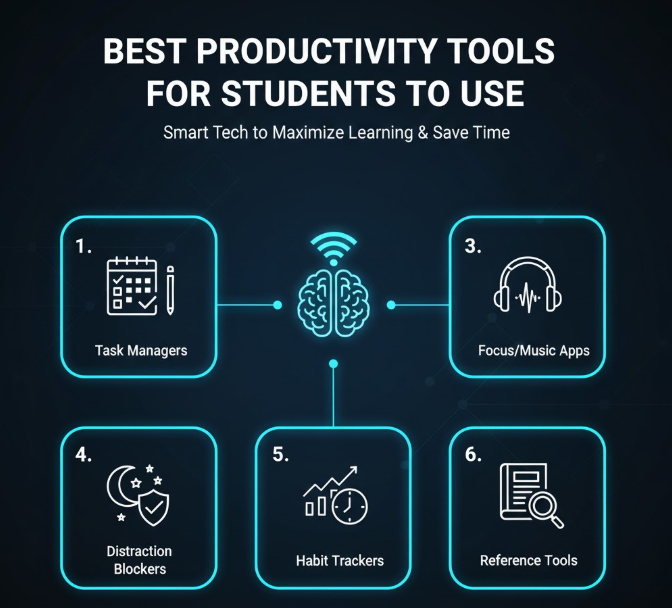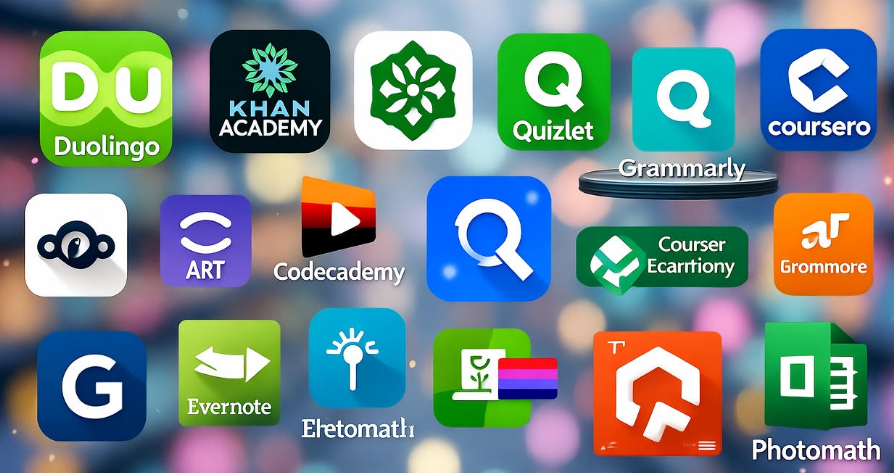Let’s be honest, between homework and exams, friend hangouts and family time, and maybe even a part-time job thrown in there—you feel like you’re struggling to stay on your feet while attempting to juggle everything at one time. If you’ve ever felt torn between completing a math assignment and hanging out with friends, you’re in good company. The good news? It’s not an either/or proposition. With the right strategies, you can totally rock your classes AND enjoy an amazing social life.
This guide will teach you real-world, time-tested methods for balancing your studies and social life without burning out or feeling guilty along the way. No hokey theories — just plain-old advice that really works.
Why Balance is More Important Than You Think
Before we get to the how-to, let’s talk about why this balance is so important. High school and college are not just about grades but about making friends, finding yourself, and making memories that will last a lifetime.
Research shows students who have strong social ties to their peers do better academically. They give you emotional support when you’re stressed, they keep you motivated and they remind you that schoolwork isn’t the only thing in life.
On the other hand, the path of ignoring your studies entirely just leads to stress, bad grades, and fewer life opportunities. The ultimate best is in the middle — where you don’t have to choose one side or the other when it comes to enjoying your life.
10 Signs of a Life Out of Balance
How do you know if things become too balanced one way or the other? Watch for these warning signs:
- You’re always tired and there’s not enough time in the day
- You are failing in your grades despite doing your best
- You feel guilty whenever you enjoy yourself with friends
- You can’t remember the last time you’ve seen someone outside of school
- You constantly feel stressed and that you don’t have enough time for anything
- Friends say they never see you anymore
- You feel like you’ve been studying for every test, and now it’s all because you didn’t plan from the beginning
Catching them early allows you to course-correct before things get out of hand.
Design a Schedule That Truly Works for Your Life
Good time management is the foundation for good balance. But that’s not what I’m interested in discussing when it comes to realistic scheduling.
Start with a time audit. Keep an exact record of how you spend your time for one week. You might be surprised to discover that you’re spending three hours a day scrolling through social media or playing games. There is nothing wrong with down time, but knowing where your hours are being spent allows you to make smarter choices.
Block out the non-negotiables first. This should be both class time, sleep (7 to 9 hours is good), meals and anything in your regular schedule like sports practice or work shifts. That amount of time is the study area that you want to isolate as much as possible and then whatever free time you have, it’s 100% flexible.
Use the 50-10 study formula. Here’s the formula: Study for 50 minutes and break for 10. During those breaks, send a friend a text, go get a snack, stretch. This helps to keep your brain refreshed and, little by little, makes the entire act of studying less daunting.
Make time for your social life. Treat visits with friends like real appointments. If you write down “Friday 7 PM: Movie night with Sarah and Jake,” you’re more likely to guard that time instead of allowing the homework to encroach upon it.
Here’s an example of what a healthy week might look like:
| Day | Study Blocks | Social Time | Personal Time |
|---|---|---|---|
| Monday | 3 hours (after school) | 1 hour (lunch with friends) | 2 hours (hobbies, exercise) |
| Tuesday | 2 hours (evening) | 1.5 hours (activities) | 2 hours (personal interests) |
| Wednesday | 3 hours (after school) | 1 hour (catch up with friends) | 2 hours (hobbies) |
| Thursday | 2.5 hours (evening) | 1.5 hours (sports/activities) | 2 hours (passions) |
| Friday | 2 hours (after school) | 4 hours (hangout with friends) | 1 hour (wind down) |
| Saturday | 3 hours (morning session) | 4 hours (social activities) | 3 hours (hobbies and rest) |
| Sunday | 2 hours (review your week) | 2 hours (family/friends) | 4 hours (prep for next week/self care) |
Remember, this is flexible. Some weeks require more study time (hello, finals week); others are for fun.
Learn the Art of Saying No (Without Feeling Guilty)
Among the most difficult things to master is saying no to fun when you really ought to be studying. Here’s the thing (the secret, if you will): It doesn’t have to be about saying no to fun—it’s about saying yes to your priorities.
When a friend wants you to meet up but you have a huge test tomorrow: “Would be down, but I have a giant chemistry test tomorrow. How about we do something this weekend instead?” You are not rejecting the friendship, you are just postponing.
On the other end of the spectrum, if you’ve been hitting the books all week and a friend invites you to grab pizza, then close up your books and go. For me, balance is not depriving myself of anything; it’s giving myself permission to have a good time without guilt.
Blend Social Life And Study Time
Studying doesn’t have to be such a solitary activity. Some of the best study sessions take place with friends.
Form a study group. Classmates create social engagement in working. You can quiz each other, teach tricky subjects to one another and make learning more fun. Just establish some ground rules — only talk about anything unrelated to the project on breaks so you actually do work.
Give the library coffee shop trick a shot. Study in a communal space where friends might wander past. You will all be able to complete your work, but some day when someone stops by just to say hi you can catch up.
Create accountability partnerships. Pair up with a pal who is also interested in making his or her grades better. Every day, touch base with each other about your goals. Taking into account that someone is relying on you to help them learn gives added drive not to give up when studying.
Plan social study breaks. Celebrate completing a challenging assignment by calling a friend or watching funny videos together online. It will feel less like a punishment to study with these little celebrations.

How to Study Smarter: Tips to Master Everything Faster
The more quickly and efficiently you study, the more time you have to socialize. Here’s how to stay calm and study smarter, not harder:
Eliminate distractions completely. Leave your phone in another room or download apps that prevent you from accessing social media when it’s time to study. One good focused hour beats three scattered hours every time.
Use active learning techniques. Rather than simply rereading notes, teach the material to another person, create practice quizzes or make mind maps. You remember it more if you do something with your brain. For more on effective study techniques, explore proven methods that work.
Study during your peak hours. Are you a morning or night person? Plan to study, write or rest when your brain is at its best.
Break major tasks into little units. Ten pages of research seems impossible. But the task of “write 2 paragraphs” seems manageable. Daily baby steps ward off last-minute panic and leave room for fun.
Keep your study space organized. Minutes are precious, and searching for lost papers or supplies can waste them. A clean, organized workspace makes it easy to begin studying.
Check this out: Best study materials for government job aspirants here.
Quality Outpaces Quantity In Both Domains
Here’s a key piece: Balance is not 50/50. It’s more than just making both your study time and social time act in a consistent manner.
Make study time count. Three uninterrupted hours on task is better than six hours of distracted half-study with texting. When you’re sitting down to study, you must really be studying. You’re then clear to enjoy your socializing without anxiety.
Choose quality friendships. You don’t have to go to every party, hang out with every friend. Hang out with the people who are there to support your dreams, know when you need to study, and leave you feeling as though there is more life in your limbs rather than less.
Be present wherever you are. When you’re with friends, be present —don’t mentally quiz yourself on vocabulary. Immerse your attention when you’re studying — you’ll derive no benefit from wishing you were anywhere else. And this mind trick can stave off burnout and guilt.
How to Survive the Hectic Seasons Without Losing Your Mind
Some periods are inherently crazier than others — midterms, finals, major project due dates, college application season. Temporary imbalance is typical and okay during those times.
Talk with your friends ahead of time. Tell them you will be seeing less of them for two weeks, but after exams things can return to normal. Your real friends will get that and respect your priorities.
If anything, arrange for one small social engagement during the crunch. Even during finals week, grab lunch with a friend or go on a 30-minute walk together. A little moment of social contact like this can refill your battery and protect against isolation.
Make plans for something fun to look forward to. Having a concert, trip or party scheduled after your exams are over will help drive you through the long weeks ahead.
Seek help when you need it. Excuse yourself from things that aren’t essential right now and ask teachers about extending deadlines or get family members to take over some of your responsibilities for a little while. People want to help — you just have to ask.
The Care and Feeding of Your Body and Mind
Balance is not only time management but also physical and mental well-being. You can’t kick butt academically or socially if you’re running on empty.
Even more than anything else, try to get lots of sleep. Burning the midnight oil and staying up until 2 a.m. studying may sound heroic, but you won’t remember as much of what you’re reading, and you’ll feel pretty awful. A well-rested brain learns more quickly and thinks more clearly.
Move your body daily. Exercise alleviates stress, sharpens focus and elevates mood. Play a sport, dance in your room or take a brisk walk around the block. Movement matters.
Eat real food. You cannot think without fuel for your brain. Chips and energy drinks just don’t do it. Eating regular meals loaded with fruits, vegetables, proteins and whole grains will keep your energy on more of an even keel.
Practice stress management techniques. Some will cope better with deep breathing, meditation, journaling — or whatever works for you to decompress. Even just five minutes of peace can reset your whole day.
Creating Habits for the Long-Term to Maintain Balance
The strategies in this article are not quick fixes — they’re habits that you keep for years.
Review and adjust regularly. It also helps to check in with yourself once a month. Is your current balance working? What needs to change? Life changes, and so should your schedule.
Celebrate your wins. Scored perfect on a test AND attended your bestie’s birthday party? That’s worth celebrating! Celebrating your victories creates muscle memory for good behaviors.
Learn from the imbalances. When things go haywire, give yourself a break. Determine what’s gone astray and recalibrate. Perhaps you need better boundaries, or maybe you’re just overcommitting. Each mistake teaches valuable lessons.
Remember your “why.” On the days you struggle to achieve it all and balance feels unattainable, remind yourself how and why studying (and socializing) matters. You’re laying down those memories that make life worth living while building a foundation for the future.
Comparison Table: Balanced vs Unbalanced Student Life
| Aspect | Unbalanced (Study-Heavy) | Unbalanced (Social-Heavy) | Balanced Approach |
|---|---|---|---|
| Weekday evenings | 5+ hours studying alone | Out with friends most nights | 2-3 hours study / 1-2 hours social |
| Weekends | Studied all weekend | No time for homework | Mix of study, social, and personal time |
| Stress Levels | Nervous wreck from being anti-social | Concerned about grades | Manageable |
| Grades | Good but miserable | Poor grades | Excellent |
| Friendships | Isolated | Strong but performance suffers | Healthy and balanced |
| Physical health | Stressed and poor diet | Poor diet | Good overall health |
| Future outlook | Has academic knowledge; unable to make connections | Might fail | Well-prepared for college and life |
Your Questions Answered: FAQ Section
My friends don’t get why I have to study.
When you want to make a change based on solidarity with others, if people with whom you’re in relationship don’t share that goal they will further agree your goals are worth respecting. Say that you care about your education and offer other times to hang out. If they keep pressuring you or making you feel bad for studying, perhaps it’s time to assess whether these friendships are doing right by you.
How many hours do I need to study every day?
This will depend on your courses, learning style and current objectives. High school students should plan to spend 1-3 hours doing homework or reviewing each day, and college-bound students may need still more time spent studying. Quality is more important than quantity—focused studying in shorter sprints tends to beat out marathon stretch sessions.
Is it acceptable to miss social activities to study?
Sure, when you’re dealing with real academic demands. The key is balance over time. Most social events will hurt you and the people who want to spend time with you if you end up skipping them constantly. But opting to study instead of party before a big exam is smart prioritization.
What if I feel guilty when I’m having fun and not studying?
This guilt frequently results from not being more prepared. When you plan your social life after finishing your study goals, you can have fun with no guilt. And remember—down time isn’t lazy, it’s essential for mental health and even boosts academic performance in the end.
How can I overcome my fear of missing out when I’m studying?
As you know, social media shows highlight reels and not reality. The lives of your pals aren’t quite as thrilling as their updates suggest. Direct your focus inward on your own targets and interests. And mute social media during those study hours so you’re not getting the constant influx of what everybody else is doing.
How can I keep my balance during exam week?
Crisis mode balance looks different. On exams you might swing towards 80% study and 20% social/self-care rather than your standard 60-40. A week or two is acceptable for that. Just don’t live in extreme imbalance all of the time.
What if I’m naturally introverted and don’t want a ton of social time?
Balance is personal. Introverts require less social contact than extroverts to feel satisfied. Establish an equilibrium that meets YOUR needs — not what others think you should or shouldn’t want. One person who craves more alone time may prefer the stimulation of a smaller, tighter network of five best friends.
How do I manage studies with social life if I also work part-time?
This requires extra careful planning. First, block out all work and class hours, then allocate the rest to studying and socializing. You may have to be more selective about the social events that you attend, essentially stacking your socializing with meals (lunches with friends) or even studying (group study sessions). Also worth considering is whether you can sustain your hours at work — sometimes taking a step back here improves not just grades, but overall health.

Your Balanced Life Starts Today
Balancing study and social life isn’t about doing both perfectly — it’s about making intentional choices that respect how much you value both your goals and your relationships. You might have days where you push harder toward studying and others when friends get the nod. Which is more than fine — it’s how life should work.
Start small. Choose two or three strategies from this piece and give them a whirl this week. Perhaps you’ll construct a schedule that’s realistic, organize a study group or practice saying no without guilt. As these become habits, introduce more until balance is simply the way you are.
Remind yourself: You’re not choosing between success and happiness. You’re trying to make a life in which both are possible. Your grades count and so do your relationships. Your future is important and so is your present. You deserve both — and with smart planning, you can have both.
The life of balance you seek is entirely within your reach. It just requires intention, honesty with yourself about your priorities and the willingness to course-correct when things aren’t working. You’ve got this.
Now shut this article down, pull up your calendar and make one tiny change today. Your balanced future is waiting.





